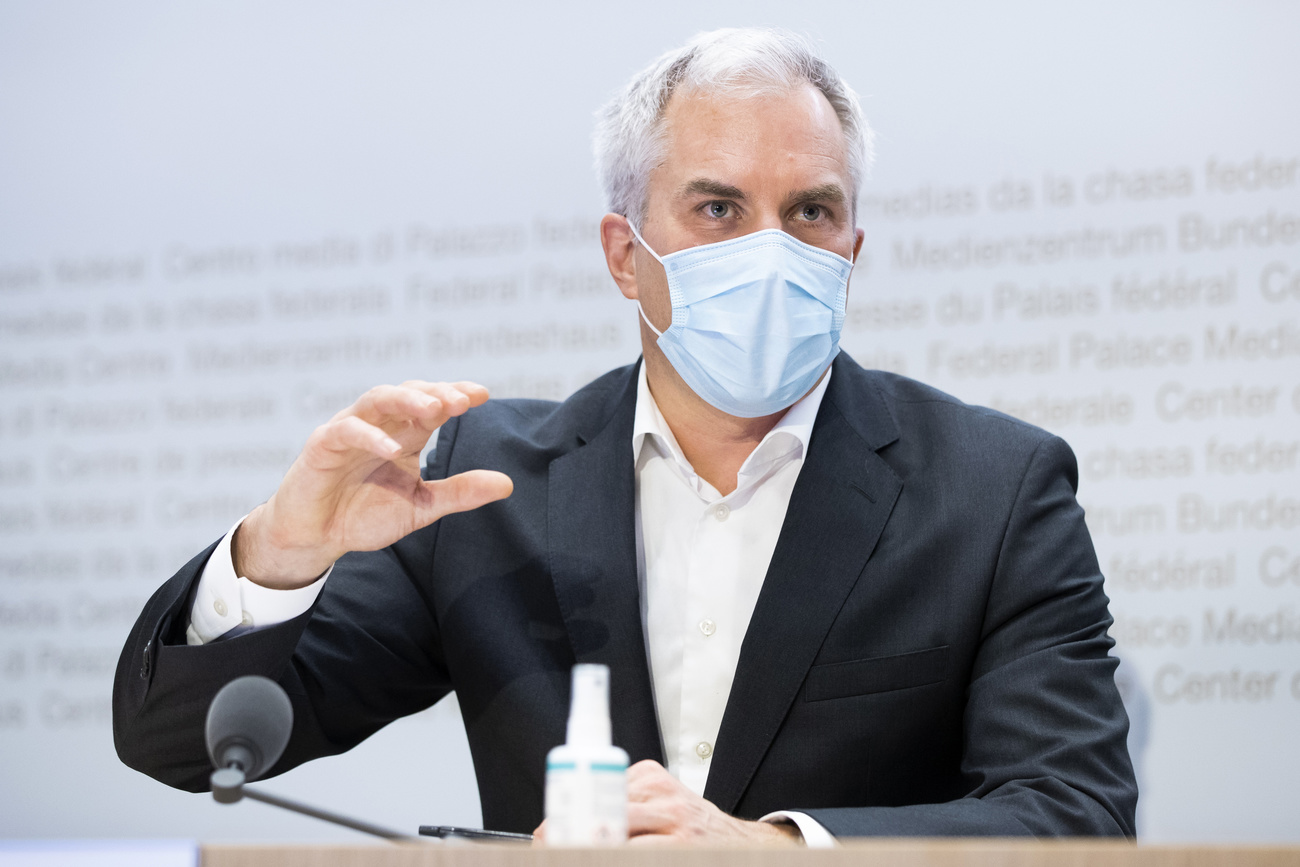Covid taskforce chief ‘positively surprised’ by health situation

The chances of easing coronavirus restrictions in Switzerland are improving, according to the president of the Swiss Covid taskforce. But the business community is losing patience.
In an interview published Sunday in the German-language weekly NZZ am Sonntag, Martin AckermannExternal link said he was “positively surprised” by the improved public health situation.
+ The coronavirus situation in Switzerland
The Covid-19 scientificExternal link taskforce had feared an increase in infections due to the relaxation of restrictions in April. Ackermann says three issues were misjudged: the warm weather, the transmission rate of the British variant and human behaviour.
Risks remain
The Swiss, notes the government adviser, appear to have behaved reasonably. Yet the risk of an uptick in cases remains. If restrictions are relaxed too quickly and too widely, people who have not had a chance to be vaccinated would be exposed to undue risk. “It would not be fair to them,” he says.
The biologist considers it too early to allow restaurants to serve food indoors, especially since close contact without a mask poses a greater risk of infection when people are inside.
The hard-hit hospitality sector, however, is anxious for indoor dining to resume.
Home office obligation in question
Others in the business community are urging the government to drop the home office obligation before the end of May, according to newspaper Limmattaler ZeitungExternal link.
“It is not a proportionate measure,” says Hans-Ulrich Bigler, director of the umbrella Swiss Trade AssociationExternal link. Protective concepts could be rolled out at the office and there is no greater risk of infection in the workplace than elsewhere, he argues.
The director of the Swiss Employers’ AssociationExternal link, Roland Müller, shares that view. “Many supervisors hear from their employees that they have reached their psychological stress limits with up to a year in home office,” he says in remarks published by the German-language newspaper.
The business leaders want the government to make home office a recommendation rather than mandatory.
Vaccinations first
The workers’ associations are more cautious. Although many employees are fed up with working from home, Ursula Häfliger from the Swiss Commercial AssociationExternal link notes there are still plenty of opportunities to catch the virus, on the way to work or in the office itself.
“In order to lift the obligation, the situation must stabilise and a large part of the workforce must have had the opportunity to be vaccinated,” she says.
So far, just over a million Swiss have been fully vaccinated, or 11.7 % out of the population of 8.6 million.

In compliance with the JTI standards
More: SWI swissinfo.ch certified by the Journalism Trust Initiative




















You can find an overview of ongoing debates with our journalists here . Please join us!
If you want to start a conversation about a topic raised in this article or want to report factual errors, email us at english@swissinfo.ch.